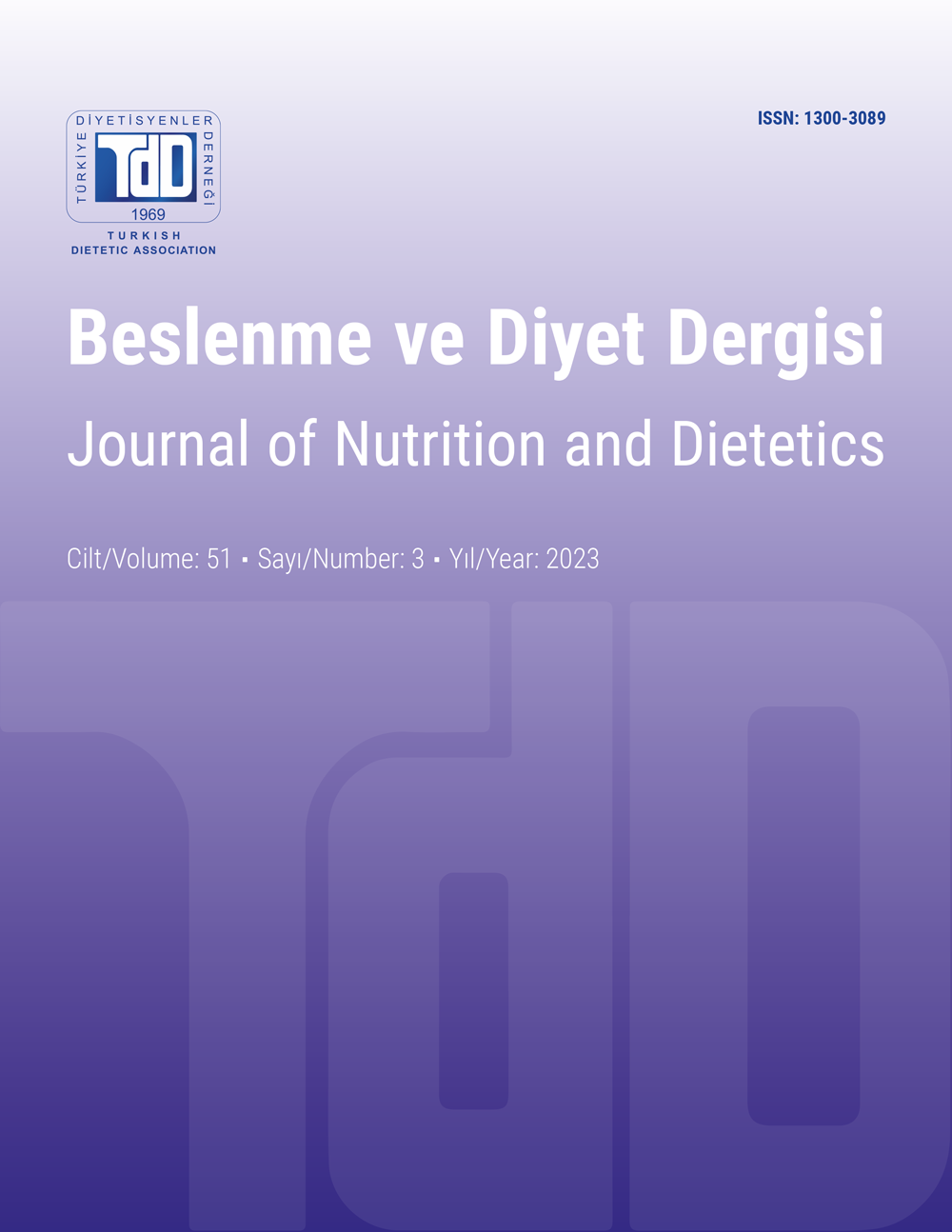Adherence to Mediterranean Diet and Determination of the Relationship to Emotional Eating and Stress Status of Adolescents
DOI:
https://doi.org/10.33076/2023.BDD.1762Keywords:
Adolescent, Mediterranean Diet, KIDMED, Emotional Eating, StressAbstract
Aim: This study was conducted to determine the relationship between adolescents’ adherence to the Mediterranean diet, emotional eating and stress states.
Subjects and Method: The study was conducted with 281 volunteer adolescents aged between 11-14 years. A survey form containing general characteristics, Mediterranean Diet Quality Index (KIDMED), Nutrition Exercise Behaviour Scale (NEBS), Perceived Stress Scale (PSS) and Emotional Eating Scale for Children and Adolescents (EES-C) was applied to the participants; anthropometric measurements (body weight, height, waist circumference) were taken.
Results: 58.4% of the adolescents participating in the study were boys and 41.6% were girls; The mean age of boys is 11.94±1.08 years and of girls is 12.30±1.15 years (p<0.05). 27.8% of the participants are overweight and 16.7% are obese. The Body Mass Index (BMI) of boys is significantly higher than that of girls (p=0.03). It was determined that 25.3% of the participants had low adherence, 53.0% had moderate adherence, and 21.7% had high adherence with the Mediterranean diet. Significant differences were found between genders in terms of adherence with the Mediterranean diet (χ2=7.412; p=0.025). The rate of low and high adherence with the Mediterranean Diet is higher in boys than in girls. It was determined that as age and BMI increased in adolescents, psychologically dependent eating behaviour increased and healthy eating-exercise behaviour decreased (p<0.05). Additionally, a significant positive correlation was found between BMI and EES-C in girls. As a result of the logistic regression analysis, being one year older and being male increases the risk of low adherence with the Mediterranean diet by 1.3 and 2.15 times, respectively (p<0.05). When the level of perceived stress increases, the risk of low adherence with the Mediterranean diet increases; as the NEBS score increases, the risk of low adherence decreases (p<0.05).
Conclusion: Male adolescents, older adolescents, and those with high stress levels have an increased risk of poor adherence with the Mediterranean diet. In this study, it was determined that the increase in stress level negatively affected healthy nutrition behaviour. More comprehensive studies are needed to determine the relationship between the Mediterranean diet, emotional eating and stress.

